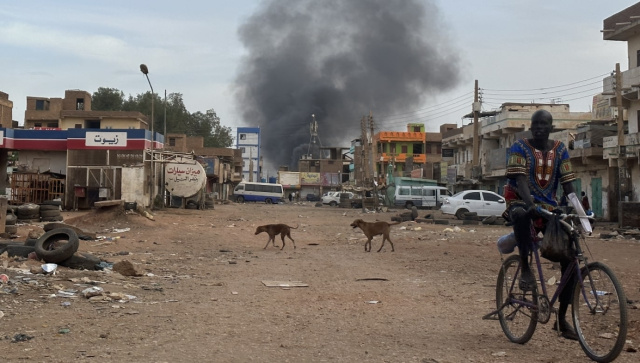Humanitarian disasters… How does the Sudanese conflict impact the border and Chad?

Despite a truce between Hemeti’s RSF and Burhan’s SAF, the humanitarian situation in Sudan remains affected by the war, with nearly one million Sudanese displaced by the war between the two warring parties.
The latest developments in Sudan have brought the military escalation under control, and with the exodus of Sudanese to neighboring countries, the humanitarian situation has worsened amid crises in key resources such as food, water and medicine.
Influx of Sudanese
Sudanese refugees are arriving in Chad at a very rapid pace, to the point where it is impossible to move them all to safer places before the rainy season starts in late June, and the UN Refugee Agency (UNHCR) has confirmed that between 60,000 and 90,000 have fled to Chad since the conflict in Sudan began last month.
Tens of thousands are in a makeshift camp in Buruta village, where Pierre Kramer of the International Federation of Red Cross and Red Crescent Societies (IFRC) was based last week.
Resettling some 28,000 refugees before the rainy season, during which Porta may be completely cut off, has become extremely difficult, and portends a humanitarian catastrophe to come.
Children and women
Around 80 per cent of the refugees are women and children, many of whom were separated from their parents as they fled the conflict-ridden Darfur region of Khartoum in recent weeks.
The UN Refugee Agency (UNHCR) said it was seeking to relocate refugees who were overcrowded in border areas to already-existing refugee camps in Chad and to establish five new camps.
Refugees in makeshift camps near the Sudanese-Chadian border suffer from a shortage of drinking water and a crisis in accommodation, with few refugees receiving plastic sheeting to protect them from the rain while sleeping and others building makeshift huts to protect them from the sun, but no rain protection immediately after the rainy season begins.
Malaria and several other diseases are likely to spread among refugees a few weeks after the rainy season.












